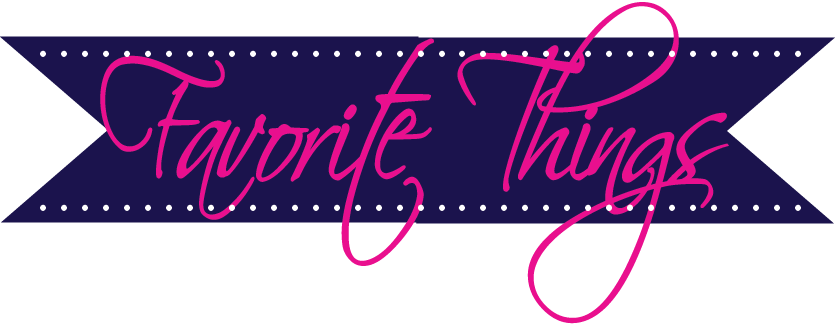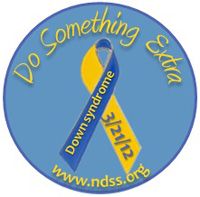Here goes-- I wrote all the names down and my husband drew one name....
CM-- who are you??? You commented on the blog this week and you are the WINNER! Please send me an email with your email address and I will send you your $10 Starbuck's card. Congratultations, CM!

A Good and Perfect Gift: Faith, Expectations and a Little Girl Named Penny is a new book out by Amy Julia Becker that I literally just ordered on Tuesday night. I cannot wait for it to arrive in my mailbox. Having just read The Shape of the Eye, I am hungry for another book. Another story to follow and to relate to. Another journey to read about that helps explain our own family journey with Joey.
I found out about this new book after reading the following article by Amy Julia Becker on the New York Times Motherlode blog-- BAM-- it's one of those pieces that resonates and rings true. Once I read the first article I was hooked and could not stop reading. Some days I think that the more I read the better prepared I will be. That it will somehow make me a better parent. On some days, all the articles and research seem to just overwhelm me and I don't know where to start. That's when I go back to my nightly prayer when I'm caught between the time when the wheels cannot stop spinning, but my body is weary and I know that if I don't sleep for a few hours I will collapse. So I pray.... "God, please let me be the best wife, the best mom and the best person I can possibly be."
I hope you enjoy her beautiful writing and I can't wait to read A Good and Perfect Gift: Faith, Expectations and a Little Girl Named Penny. I'm including two of her wonderful articles that have been featured on Motherlode--Has Down Syndrome Hurt Us and Is It Harder to Have a Child With Down Syndrome?
Happy first week of National Down Syndrome Awareness month! Next week I'm going to give a copy of A Good and Perfect Gift: Faith, Expectations and a Little Girl Named Penny away along with the $10 Starbuck's Card. Because, really... who wants a cup of coffee without a really good book to read?
Has Down Syndrome Hurt Us?
By LISA BELKIN
Of the growing genre of eloquent parents describing what it takes to raise a child with a disability, Amy Julia Becker is one of the best. She has writtenoften for Motherlode, about how Down Syndrome means life for Penny is different, and exactly the same.
She recently published a memoir of her family’s tale, called “A Good and Perfect Gift: Faith, Expectations, and a Little Girl Named Penny.” To commemorate the moment I asked her to write here for me one last time, about the question every parent asks in one form or an other at the start of the journey.
HAS DOWN SYNDROME HURT US?
By Amy Julia Becker
By Amy Julia Becker
When a car trip gets too long, when they are stalling before bedtime, on a rainy day, my kids ask me to tell them the story “’bout when I was born.” They can recount many of the details: that William’s head was very big (they giggle every time I explain that the obstetrician had to vacuum him out) and that we had to wait and wait and wait for Marilee and that for all three of them I got medicine to make me feel better when we went to the hospital. They know that their dad and I spent three hours getting Penny’s nursery ready before I called the doctor. But for a while, when I told Penny’s story, I left out one crucial detail. I didn’t tell her what happened two hours after she was born, when a nurse called my husband out of the room and he returned with wet eyes and a sentence I couldn’t comprehend: “They think Penny has Down syndrome.”
Earlier this year Penny and I were alone as I retold the story again, and I decided it was time to let her know that the day of her birth hadn’t been all rejoicing and ecstasy. I got to the end of the familiar narrative and I added, “After you were born, I was scared, because the doctors told us you had Down syndrome.”
She cocked her head to the side. “Why you were scared, Mom?”
“I was scared because I thought Down syndrome would hurt you,” I said. I paused, knowing I had only told part of the truth. “And because I thought it would hurt me.”
“Oh.” Penny blinked her eyes the way she does when she’s thinking hard about something.
My thoughts moved back to the wave of fear and sadness and anger that had engulfed me in the hospital, the darkness that lifted only when Penny was in my arms, when I stopped worrying about the years ahead and instead gazed at her pudgy round cheeks and waited for her deep blue eyes to flicker open and believed for just a moment that everything would be O.K.
And, five years later, everything is O.K. My fears about Penny’s condition were largely unfounded. She hasn’t suffered major health complications and it has not been difficult to love her. I can even say that I’m grateful to have a child with Down syndrome because through her I have learned to value more of my fellow human beings than I might have if I had given birth only to “typical” children.
But I haven’t told Penny that the general cultural perception of Down syndrome continues to hurt us all. The hurt comes in two forms. One, the well-meaning but simplistic pronouncement that people with Down syndrome are “sweet and loving angels.” This attitude dehumanizes individuals with Down syndrome by assuming they can’t and don’t experience the full range of human emotions and needs. A similar hurt comes in the statement I heard all too often when Penny was first born, “God only gives very special parents such special children.” Down syndrome became a litmus test for my parenting skills, but I was well aware that I didn’t know anything more or have any greater capacity to love my child than the woman who gave birth in the room next to mine.
The other way that cultural attitudes toward Down syndrome hurt us is through the assumption that individuals with Down syndrome and their families would be better off not living at all. At this moment, most women who give birth to a child with Down syndrome do not know about their child’s extra chromosome until he or she is born. Only 2 percent of all women seek a definitive diagnosis of Down syndrome or other chromosomal abnormalities through amniocentesis or chorionic villa sampling during pregnancy. But of the women who receive that definitive diagnosis, the vast majority (90 percent) choose to terminate their pregnancies.
Recent advances in prenatal testing include a non-invasive blood test for all pregnant women with 98 percent accuracy in diagnosing Down syndrome in the ninth week of pregnancy. It’s not the test that bothers me, nor the desire to prepare well for the birth of babies. What bothers me, and what hurts our family, is the perception, often reinforced by doctors, that a life with Down syndrome is not a life worth living, or that the burden such a child places upon a family and society is simply too great.
Penny starts kindergarten this fall. She will be learning to read and play and paint and use the computer and express her feelings alongside her typically developing peers. She will help me out around the house by “folding” laundry, by setting the table, by making her little sister giggle as I prepare a meal. She’ll frustrate me when she refuses to go to the potty by herself or when she yells at William or when she whines about not getting her way. We’ll snuggle on the couch and she’ll sound out words on flashcards, with a flush of excitement rising to her cheeks when she figures one out and says, “I can do this, Mom!”
In that moment a few months back, when I finally added Down syndrome to Penny’s birth story, I took her chin in my hand so I could look into her eyes, now a sparkling green with a dark blue outline. I said, “But Down syndrome didn’t hurt you. And it didn’t hurt us. So we didn’t need to be scared anymore.”
“So then you were happy?”
I reached out my arms and gave her a big hug. “I couldn’t be more happy that you are my daughter.”
Is It Harder to Have a Child with Down Syndrome?
By LISA BELKIN
The conversation sparked by Amy Julia Becker’s guest post last week about her decision not to have prenatal testing is still going strong. One of the many themes in the comments is the “burden” — and the differing perceptions of that word — of raising a child with Down syndrome in particular and with disabilities in general.
Becker, who a seminary graduate who writes often about ethics, has addressed this thread of questions in a post on her own blog, which she’s titled “Is It Harder to Have a Child with Down Syndrome.” She has given my permission to reprint it in its entirety here, as a way to continue what has been a thoughtful exploration of an important subject.
IS IT HARDER TO HAVE A CHILD WITH DOWN SYNDROME
By Amy Julia Becker
By Amy Julia Becker
In a recent Motherlode post, I wrote about our decision to forgo prenatal testing for
Down syndrome with my third pregnancy. The American College of Obstetricians and Gynecologists recommend prenatal screening for all pregnant women, and I am at “higher risk” for having a child with Down syndrome, due to the fact that our eldest daughter Penny was born with an extra 21st chromosome. In response to my post, many readers wrote about the “burden” that having even one child with Down syndrome imposes upon a family, particularly in the later years of life as parents age and children with Down syndrome become adults. It’s easy to use words like “sweet” and “joyful” and “blessings” to describe my daughter, but perhaps those words belie an underlying reality (present or future) of suffering and hardship.
Down syndrome with my third pregnancy. The American College of Obstetricians and Gynecologists recommend prenatal screening for all pregnant women, and I am at “higher risk” for having a child with Down syndrome, due to the fact that our eldest daughter Penny was born with an extra 21st chromosome. In response to my post, many readers wrote about the “burden” that having even one child with Down syndrome imposes upon a family, particularly in the later years of life as parents age and children with Down syndrome become adults. It’s easy to use words like “sweet” and “joyful” and “blessings” to describe my daughter, but perhaps those words belie an underlying reality (present or future) of suffering and hardship.
My personal experience only goes so far. Penny is 4½. I have one other child, William, age 2. Soon after Penny was born, as I was dealing with the shock, fear and anger that my daughter had Down syndrome, the practical challenges presented themselves. There were the doctor’s visits. I resented my intimate knowledge of the Children’s Hospital of Philadelphia, Penny’s annual trip to the Trisomy 21 clinic, her frequent visits to the cardiologist. We had special X-rays of her spine in case there was any sign of instability, a hip ultrasound, a brain ultrasound (all were fine). Penny still needs checkups every six months on both her eyes and her ears. She’s been hospitalized twice, both related to gastro-intestinal problems.
It was intense. Four therapists visited our house on a weekly basis. I kept a chart of all the exercises they suggested, and I wrestled with constant guilt when I didn’t cycle through the whole list as the week went on. And I did choose to let my professional goals slow down for those years, with the knowledge that both the doctor’s visits and therapy sessions would likely decrease as Penny grew older. (Other parents don’t have the same flexibility as I did, which doesn’t mean they are forced to choose between working and caring for their child. The therapists go to the day care in that situation.)
Potty-training was our greatest parenting challenge. Due to low muscle tone and
hyposensitivity (difficulty feeling sensation), it took two years of accidents and extra
laundry before Penny could safely leave the house in underwear. For William it has taken about a month.
hyposensitivity (difficulty feeling sensation), it took two years of accidents and extra
laundry before Penny could safely leave the house in underwear. For William it has taken about a month.
Penny is potty trained now, although still working on the buttons on her pants. She tells me she will learn to unbutton them when she’s 5. We have far fewer doctor’s appointments, and her therapies happen in the context of her publicly funded preschool program.
Now that I have William as a point of comparison, I can also say that certain aspects of Penny’s early years were easier. She rarely cried. She slept 10 hours at night starting at 7 weeks old. Even her physical limitations sometimes came in handy. I never had to worry about her climbing onto a bookshelf and pulling it down on top of her. She was more cautious than he, so it was William who ended up in the emergency room for five stitches in his ear when he was 13 months old. And parents of adult children with Down syndrome often comment upon the fact that their son or daughter with Downs is the “easiest” of the bunch. Although the individual stories will vary (as the comments on my original post made clear), the overall portrait of family life with a person with Downs in the mix is a positive one. Harder in some ways, yes. But good.
It’s hard to specify the joys that come from a child with Down syndrome. Perhaps I
experience even greater pride in her accomplishments because they once seemed
impossible. But my joy as a mother comes, like it does for any parent, from the small
moments of wonder and beauty and human connection.
experience even greater pride in her accomplishments because they once seemed
impossible. But my joy as a mother comes, like it does for any parent, from the small
moments of wonder and beauty and human connection.
I think of Penny’s first ballet class. She kept up with the other kids, pointing and flexing and learning first position. At the end of class, as I was trying to usher her out the door to our next appointment, she tugged on my skirt. “No, Mom,” she said. “I need to say thank you to my teacher.” Maybe that’s a sign of good parenting, although I hadn’t prompted her in any way. Maybe it’s because of Down syndrome; none of the other kids went back to give thanks. Or maybe it’s that Penny is her own person — with strengths and weaknesses, challenges and gifts.
I know, I know. I’m just naïve. As Penny grows up, she’s going to face the real challenges. According to much of the literature about Down syndrome, and echoed in many of the comments by readers of my original post, I will change my tune when she can’t live independently. It is at best uncertain whether she will go to college or get married, and very unlikely that she could have children of her own. She may not be able to fully support herself financially. She has a high likelihood of developing Alzheimer’s at an early age.
Penny is vulnerable. She is limited. She is needy. That’s true of all babies, and to some degree all toddlers, and yet it is also true of many adults with disabilities. Having Penny in my life has made me wonder, though, how true those words — vulnerable, limited, needy — also are of me.
Sure, I went to college, and I have skills that can produce income for our family. And yet I have had to unlearn one of the things my education and productivity taught me. Through Penny, I have come to realize that interdependence is constitutive of my humanity. That it is a gift to me when I need other people, when I form relationships of mutual giving and receiving. Similarly, it is a gift when I am able to offer myself in service to others based on my particular abilities. Having Penny, and interacting with other children and adults with disabilities, has changed the way I see the world. Instead of categorizing into able and disabled, I see us all as interconnected. And I believe that every person has something to teach me, just as I have something to offer in return.
Is having a child with Down syndrome harder? I suppose the answer is yes. And yet the largest source of stress associated with having Penny in my life has nothing to do with her particular needs. Rather, it comes from knowing that our daughter is entering a world in which people assume they know her abilities (or lack thereof) simply by looking at her face, with its flat features and extra fold of skin around her eyes. The hardest thing about having a child with Down syndrome is knowing that there are people who would compare her to a dog (as one reader did in a comment to my original post) and people who assume she takes more from us than she will ever be able to give or that she is a “cross to bear” (the religious version of the same sentiment).
I have the privilege of being the mother of a child with Down syndrome and, through her, being introduced to a world of people who have taught me more about what it means to be human than my education and productive life skills ever could. Harder times may come, but I cannot imagine a day when I would regret her presence in my life or in our community.























Just as our children/adults with Down Syndrome share characteristics, we parents share so many of the same experiences! Amy's stories brought back many memories for me.
ReplyDelete